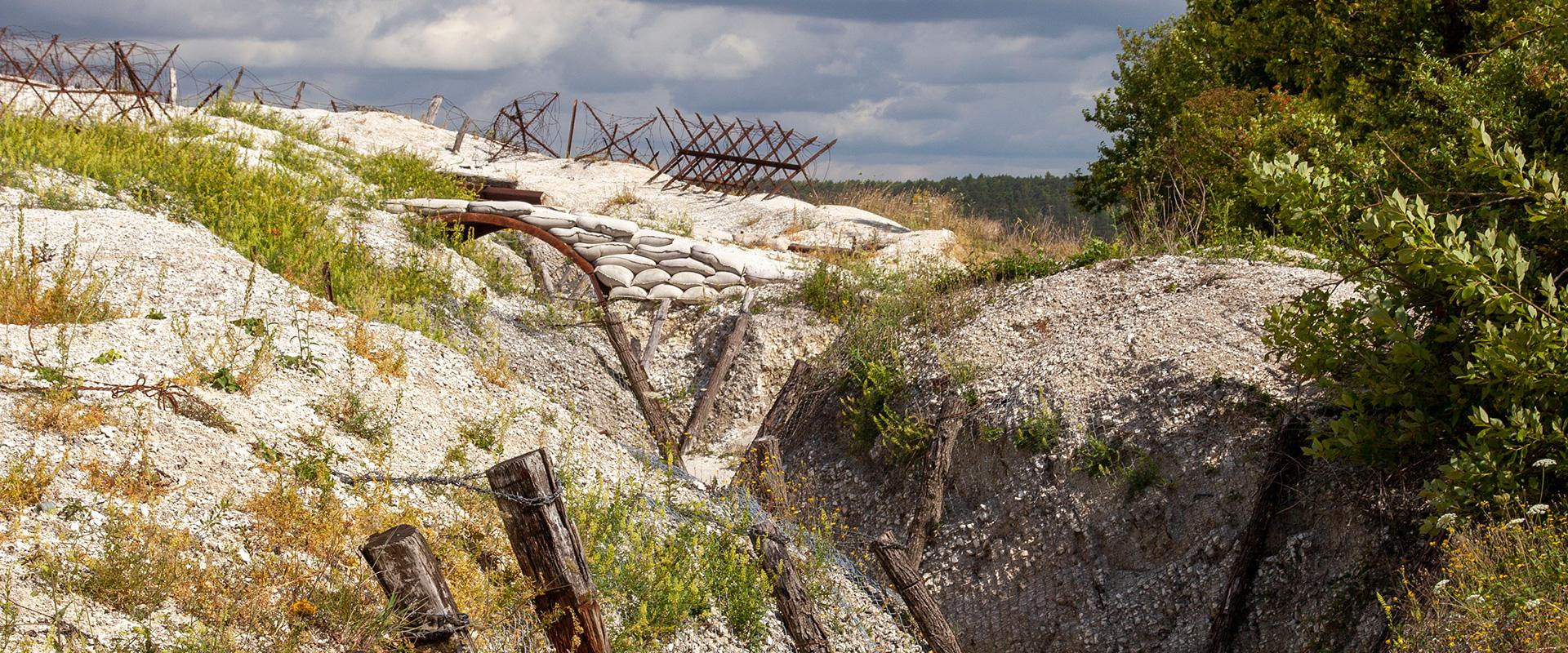Waging war is an age-old, violent human activity: the use of force, usually armed, between several organised communities, clans, factions or states to force the opposing party to submit to its will.
Because it takes place on land and, more generally, in areas referred to as the "theatre of operations", war has its own environment with which it has multi-faceted, shifting relationships: as it unfolds, it simultaneously and inevitably changes its environment.
The scale and diversity of the environmental consequences of war have grown relentlessly with the increase in military violence, the size of the armies involved and, above all, the power of weapons, which have also become more diversified and specialised.
The Great War: a major turning point
The technical development of warfare initiated at the end of the 19th century, driven by advances in technology and weaponry, and the massive use of this unprecedentedly powerful arsenal, marked the beginning of the era of modern mechanised warfare with the First World War (1914-1918), known as the Great War.
The Great War was the first anthropological rift in the relationship between human beings and their environment. Never before had the environment been so profoundly and permanently changed in such a short space of time. War has since then been a factor in the anthropisation of the environment.
The onset of ecocide
With the Vietnam War (1955-1975) and the Cold War, the environment became a deliberate target for military action to dislodge enemy combatants.
In Vietnam, the environmental effects of the war became brutally visible to millions of television viewers and readers. The name and concept of "ecocide" grew out of this awareness in the broader context of criticism of the American military intervention in Vietnam.
The consequences are still poorly understood
Environmental and historical studies to establish links between major armed conflicts and changes in the normal state of our environment, or even pollution when these changes are synonymous with harm, are still local, fragmented and in their infancy.
We are only just beginning to assess the scale of the traces left by the Great War in our soil and groundwater over a hundred years ago.







